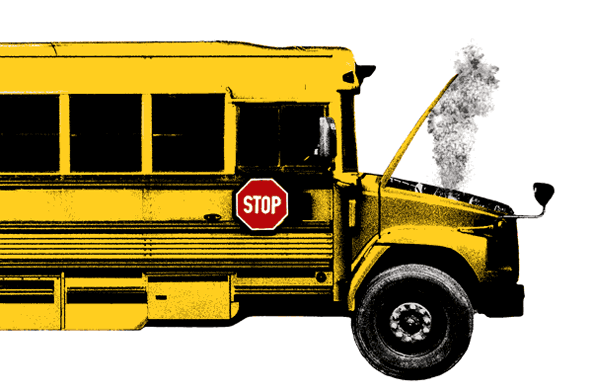America left behind in education

Writer calls attention to American education.
March 29, 2017
Here in America, we pride ourselves on being “the best.” We lead the world in music, hospitality, agriculture, and pride in our home. We’re the greatest, right? Except when it comes our education system… The truth is, America has fallen behind the curve and it’s time we woke up and smelled the graphite.
According to a study done this year by the U.S. Department of Education and the National Institute of Literacy, 32 million adults in the U.S. can’t read. That’s 14 percent of the population. 21 percent of adults in the U.S. read below a 5th grade level, and 19 percent of high school graduates can’t read.
“As of 2011, America was the only free-market OECD (Organization for Economic Cooperation and Development) country where the current generation was less educated than the previous one,” DoSomething.org says.
To make matters worse, in 2015 the United Sates was ranked 29th in Math and Science by Fair Reports World News. That might not seem so bad considering the 76 countries included in the raking, but keep in mind the population and access to resources America has compared to the countries beating us with less. What good are all our advances if they don’t advance us as a society?
The situation is real, and getting worse. During the past decade, America has made a few attempts to improve the quality of our education system. Stricter guidelines, advanced placement classes with more rigorous course material, implementation of an increasingly challenging work load, and pressure on youth to get into college. Each of these attempts has backfired in ways no one saw coming. High school students are the prime example of the negative effects of Americas hit-the-books-even-harder attitude. Many students now experience stress levels multitudes higher than previous generations. These students are struggling to keep up with demanding course work that takes on average, two to three hours to complete (and that’s just daily work, not including special projects ). Taking into account the 8 classes a day students attend, it is reasonable to assume homework is an 5-6 hour chore every night.
How do we keep up? How do we get it all done? Here’s the truth; we cheat, we google, sometimes we simply don’t do the assignment depending on its worth and effect on our overall course grade. Answers are shared among peers with almost no hesitation because we all understand the dire consequences of not making the cut.
This does NOT mean all American kids are dishonest slackers. Most of us try our best to learn the material and put our best effort into completing assignments on our own. But when you have a presentation on Thursday, three tests on Friday, a worksheet due that afternoon, and a paper to write before tomorrow… getting quick answers for the worksheet becomes the only way to make time for the other school work. And here’s the thing that is killing American literacy and innovation in math and science; passion for learning. This method of teach-produce-work to prove understanding, and test, test, test to earn recognition for understanding destroys our will to learn.
That presentation may be fabulous, but whatever information a student learned while doing it will be thrown out to make way for what comes next as soon as the last slide is shown. This is because in order to keep up with the prove-you-know-this-and-make-it-perfect mentality a student must skip absorbing, contemplating and storing knowledge and jump straight into the immediate application of the whatever is being taught at the time. Understand the basics, apply it to the assignment, pass the test, move on to the next thing. It’s taxing, draining, and ineffective.
I asked around to see what students thought of coming to school for a free education an opportunity to learn new things everyday. Here are some of the top responses: “It’s so stressful and I don’t ever have time to actually live,” “I never sleep. Ever. And it’s still not enough.” Another student responded, “You know, you try so hard! But the moment you try to watch a movie with your family or take a weekend off with a friend, you have to scramble to get your grades up again.”
The stats, testimonies, and rankings speak for themselves; the American education system needs to be modified. So how do we fix it? I wanted some additional perspective before coming to my own conclusions and took the question to my peers, this time asking how they would change the system if they could. Student suggestions included learning foreign languages in elementary school so we can be bilingual by graduation, having more field trips and interactive learning to replace homework, and even having built in breaks set aside for hanging out and lowering stress.
In short, their suggestions are dead on. First, kids who speak one language at home and learn English at school as they grow up, maintain fluency in both languages throughout their lifetime. Scientists have found that taking breaks actually boosts brain activity and expands neural pathways, meaning a person will be more driven and think more efficiently. It is also scientifically supported that involvement of all the senses, also known as hands on learning, enhances memory.
If it were up to me? I would definitely include more hands on experience, field trips, class discussion, and interactive lesson plans in place of lectures. It would be a requirement for school to offer language courses as early as preschool and no later than 1st grade. There would student lounges stocked with healthy snacks, water, jukeboxes, and books. Students of all ages wouldn’t be forced to go to class; their options would include the student lounge, library, gym or physical activities center. Also, basic classes like math, English, and history all would take place during the morning, with advanced and specialized classes taking place after lunch. For upperclassmen, there would be optional classes on cooking, life finances, caring for a vehicle, and self defense. There would also be open field trips anyone could sign up for in the afternoons, with weekly trips to the local park, library, or museum. This way, education is about learning and not performing. Maybe my ideas sound ridiculous and unstructured, and maybe they are, but in light of recent events maybe schools should give them a shot.
In truth, the solution doesn’t have to be a complete overhaul but some things need to change and they need to change yesterday. America, as a people, has the spirit and drive for great things, but our youth have got to have the education needed to get there, not just the piece of paper claiming they do.
“Fifty years from now, countries of the world will be governed by today’s youth,” the U.S. News stated. “Their thoughts and actions will be shaped by what they know and have experienced, making education, in many ways, one of the best predictors of a nation’s future success.”

